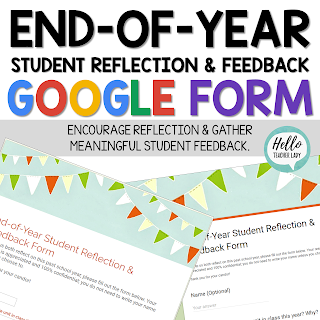As the school year draws to a close, we’re all looking for
fun ways to keep our middle school students engaged and learning– right up to
the last day!
The Middle School Mob has come up with a list of five
activities that are sure to help you make the most of these last weeks…and keep
you sane at the same time!
1. Sharon from Classroom in the Middle uses Summer Practice Cards. Summer Practice Task Cards are designed to provide a review of language arts skills for middle schoolers or students in upper elementary grades. The 30 half-page cards include five each on six summer topics: At the Beach, Life on the Pond, Low-Tech Fun, The Ball Game, Picnic Time, and Vacation and are perfect to use with a fun classroom game or activity. A coloring page cover and a checklist of assignments completed are also included so that the cards can be sent home for a summer practice booklet.
2. Shana from Hello, Teacher Lady says that no school year is complete without a little reflection! This End-of-Year Student Reflection & Feedback Google Form encourages students to reflect on their year while providing teachers with valuable student feedback and insight. The responses are automatically stored in a Google Sheet for easy viewing from any device, so no need to worry about collecting paper or wonder where you're going to store all those paper stacks.
Shana says, "I love using this digital form with my students not only because of its ease and convenience, but also because the thoughtful responses have helped me reflect on my year and improve my own teaching for the following year. (Psst - you can download the form for free in my Teachers Pay Teachers store!)"
2. Lisa shares Mrs. Spangler in the Middle's top 3 ways to finish the year strong! There's an inspirational video, a positive reinforcement system that culminates on the last day of school and even a daily motivator for those tough classes.
4. Lit with Lyns recommends this Digital End of Year Student Reflection as a great way to give students the opportunity to reflect on their year. It also allows them to provide feedback on what they thought worked well, as well as what they would like to change in specific classes.
"Not only did this help my students to reflect," Lyns says, "it also allowed me to do the same. After reading their suggestions, in addition to what they liked, I was able to implement some of their ideas into different activities and strategies I used the following year. This resource is truly a WIN-WIN for both students AND teachers!!!" It comes in both digital AND printable format!
5. Marypat from Just Add Students recommends having your students create a Reading Legacy Project. This is a fun way for students to reflect on all the great reading they’ve done through the school year. Students create a resource for next year’s class that includes book reviews, scrapbook pages, “best of…” awards, and signature pages for notes of encouragement to the upcoming class. Great resource for next year when your students ask, “What should I read?”
Give one of these ideas a try and let us know what you think... or
offer an idea of your own that makes the end of the school year a breeze!












